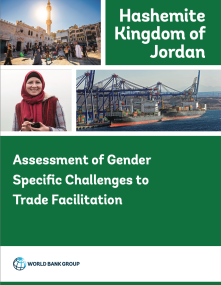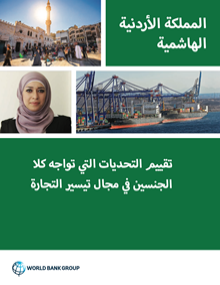Research has shown that the expansion of international trade is essential for poverty reduction, and it provides better job opportunities and increased returns, particularly for women. Around the world, women may face more or different challenges than men that prevent them from fully participating in trade.
To better understand the trade facilitation environment in Jordan, this study aimed to identify specific barriers that women, firm-level traders face when undertaking cross-border trade. The World Bank undertook a survey of 530 women and men-led businesses and 134 customs clearing agents between July and October 2023.
While the study found that men heavily dominate the cross-border trade of merchandise goods in Jordan, the research underscores that the primary challenges faced by women-led businesses are not directly associated with official border processes and procedures. Though women-led businesses appear to be at a disadvantage in some areas related to trade facilitation, the gaps are not substantial. Further research is needed to identify why women do not engage in cross-border trade in the first place.
The gathered data offers valuable insights into areas where processes and procedures are operating effectively, as well as those that require improvement for the benefit of the trade community. The analysis was primarily focused on aspects related to the World Trade Organization Trade Facilitation Agreement.
This summary note presents the main survey findings and a snapshot of recommendations for improving Jordan’s trade facilitation environment.
|
|
Download the Summary | Download the Summary |


